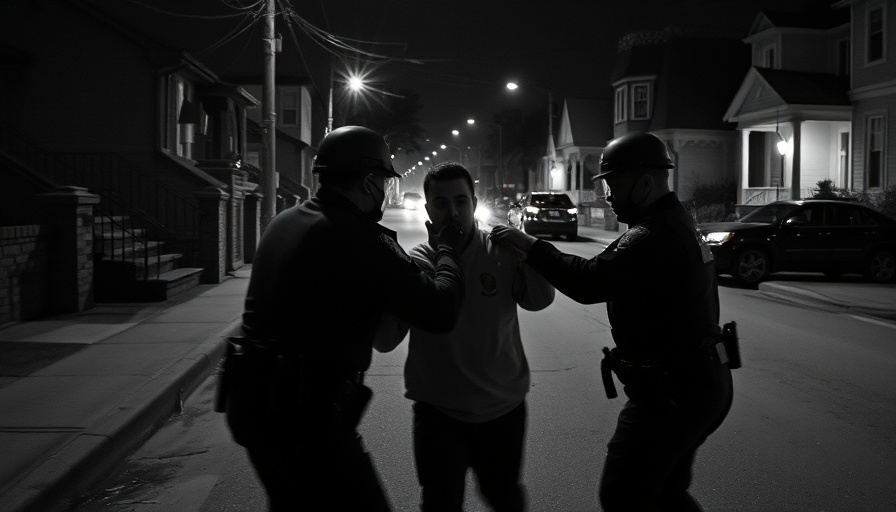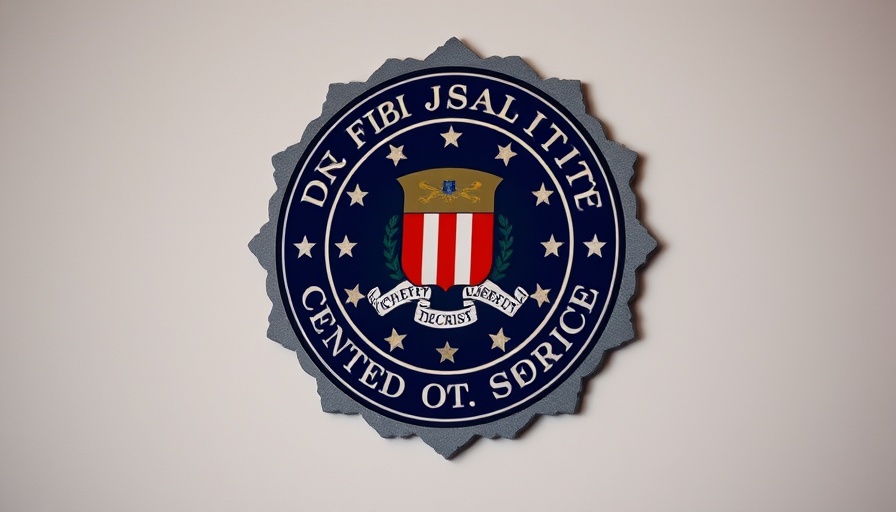
A Bizarre Florida Encounter: An Ambulance Theft Gone Wrong
Recently in Tampa, Florida, a man named Michael J. Esquilin stole an ambulance from HCA South Tampa Hospital after being denied a ride home. This unconventional crime scene took an extraordinary turn as Esquilin was pursued by law enforcement and instead of fleeing in panic, he stopped to finish a beer while troopers watched, highlighting a bizarre yet alarming episode that raises questions about public safety and the challenges facing law enforcement.
Understanding the Incident in Context
On the evening of March 15, 2025, after allegedly drinking for two consecutive days, Esquilin's reckless behavior culminated in a police pursuit. It took approximately ten minutes for the Florida Highway Patrol (FHP) to locate the stolen ambulance just a couple of miles from the starting point.
This incident underscores the importance of evaluating how public health and emergency services engage with individuals in distress. Esquilin's condition suggests a severe gap in mental health support, which might prompt abuse of emergency services and greater risk on the roads.
The Role of Law Enforcement in Emergency Situations
As law enforcement continues to adapt to diverse societal issues, understanding how to manage incidents like these is crucial. The FHP's response was swift yet illustrates a growing need for alternative strategies in handling intoxicated individuals seeking support. Training programs for officers can incorporate scenarios to prepare them for unpredictable behaviors stemming from alcohol abuse, mental illness, or socio-economic challenges.
The Consequences of Reckless Behavior
Esquilin’s charges following the incident are severe. He faces multiple counts, including DUI, grand theft of an emergency vehicle, and resisting arrest. This case serves as a dialogue starter on the implications of illegal activities while under the influence, not only showcasing individual recklessness but also placing innocent commuters at risk.
Moreover, with statistics showing that DUI arrests often spike in environments with high social gatherings, such incidents may push law enforcement to advocate for stricter DUI preventive measures.
Learning from the Unexpected: Mental Health Awareness in Law Enforcement
This incident is a reminder of the crucial intersection between public safety and mental health awareness. There is an imperative for law enforcement agencies to foster collaborative partnerships with mental health services to better approach situations involving individuals experiencing crises. Implementing comprehensive police training that includes mental health response techniques could lead to more positive outcomes and reduced rates of criminal behavior in similar situations.
Future Implications for Law Enforcement Strategies
In light of such unusual incidents, law enforcement agencies are tasked with developing new operational protocols focusing on de-escalation and mental health awareness. Initiatives may include establishing mobile crisis units that work alongside police to provide immediate support for individuals exhibiting concerning behavior, shifting the traditional reliance on arrest and punishment.
As law enforcement leaders, investing in public education campaigns surrounding the dangers of DUI and the importance of seeking help instead of resorting to serious crimes will not only enhance public safety but potentially save lives, redefining community relations.
Call to Action: Encouraging Community Engagement
As we reflect on this incident, it is time for local communities to engage in discussions about how to support those struggling with addiction and mental health issues. Collaborating with law enforcement can help create structured environments where support services can be readily accessible, reducing the number of individuals who resort to drastic measures during moments of need.
The recent theft of an ambulance by a Florida man is not simply a bizarre crime; it highlights the need for systemic change in our approach to public safety and community health. Let's work together to foster a safer, more supportive environment.
 Add Row
Add Row  Add
Add 

 Add Element
Add Element 




Write A Comment